Waste no time, seek treatment
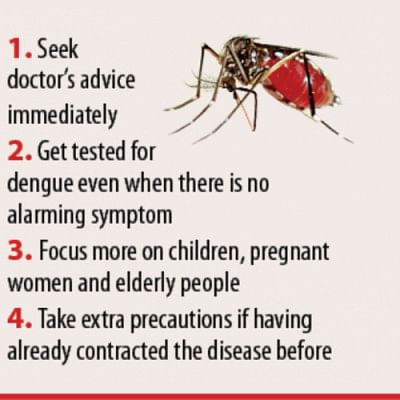
Dengue may be fatal for those who had already contracted the disease before, with doctors suggesting immediate treatment at the first sign of a fever for everyone.
“The disease becomes aggressive and more threatening when the patient is a second or more time carrier of the virus,” said Robed Amin of the medicine department at Dhaka Medical College Hospital.
Robed suggested consulting a physician immediately if one gets a fever around this time to confirm if they have dengue and what its severity is.
A majority of those being diagnosed were found to have been infected for the second time by the mosquito-borne disease persisting in the country for nearly two decades, he said.
A person can be infected by dengue four times by four different serotypes of the virus -- all of which exist in Bangladesh. During the first time, a patient may not suffer much or show any symptoms of the disease.
As many patients wait two to three days before seeking medical advice, the situation can get worse. Dengue tests can be done free of charge at public hospitals and it costs about Tk 250-300 at private facilities. Physicians recommend taking the test at the first sign of a fever, instead of waiting.
Robed has seen some 150 patients receiving treatment over the last three weeks at the unit he is in charge of. Overall, the public hospital is estimated to have got around 1,300-1,400 adult patients until now.
Children and pregnant women are considered to be most vulnerable to fatalities stemming from the disease. Adults who have health complications like diabetes, high pressure, kidney or respiratory problems are more likely to suffer more if infected with dengue.
For children and elderly people with health complications, it is best to get doctor’s advice on the first day of a fever, even before dengue is confirmed, experts said.
A dengue patient’s health condition is considered alarming when they get abdominal pains, seizure, surface bleeding, lethargy and nausea, and they urinate less, seizure.
For children, excessive crying should also raise the alarm.
Any delays in seeking treatment, can result in serious complications.
Somridhi, a six-year-old girl from Uttara, was admitted to Shishu Hospital yesterday afternoon, three days after she got fever. Her temperature was below 100 degrees Celsius and it didn’t seem worrying at the time.
Yesterday, her gums began to bleed, said Kinkar Ghosh, an epidemiologist of the public hospital.
Kazi Jabunnahar also went through a similar situation. The 39-year-old had fever for three days before she was taken to a nearby hospital from her Banasree residence about a week ago.
Two days later, her blood pressure dropped drastically and she got seizures. She has been on a saline drip and at the same time has been drinking fluids. More than a week later yesterday, her health condition became stable.
According to the Directorate General of Health Services (DGHS), 6,544 people have so far been infected with the virus between January 1 and yesterday. Five of them died.
The number of dengue patients between January and July last year was 1,374, meaning it is almost six times higher this year.
As many as 285 patients, including children, were admitted to public and private hospitals across the country in the last 24 hours.
“Last year people were infected with serotypes 1 and 2 but this year they have been infected by serotypes 3 and 4, which is why we are getting a higher number of patients with shock syndrome,” Kinkar observed.
The condition may lead to deaths if not addressed immediately.
Lutful Ehsan Fatmi, head of the child health department at Holy Family Red Crescent Medical College and Hospital, said almost all the patients admitted there with dengue suffered hemorrhagic fever.
Most children were suffering from haemorrhagic dengue, which means they bled from their organs. “It is quite dangerous,” he said.
In most cases, the treatment is to ensure that the amount of fluid drained out is being injected into the body, according to Robed Amin from the DMCH. If the treatment begins earlier, patients will suffer less and recover faster.
A set of national guidelines have been issued and around 2,000 doctors have been trained and instructed to follow them.
Against the backdrop of the recurring dengue epidemic every year between July and October when humidity is high along with rainfall, it is feared that the dengue situation will become more severe each year.
The only way to control this is to control the vector, which in this case is Aedes mosquito.
Awareness has to be built at the individual level and at community, corporate and state levels so that breeding places for the mosquitoes, such as stored still water, is not stored anywhere.

 For all latest news, follow The Daily Star's Google News channel.
For all latest news, follow The Daily Star's Google News channel. 

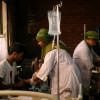
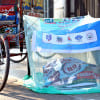
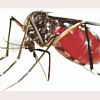
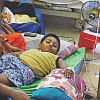
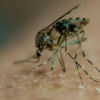


Comments